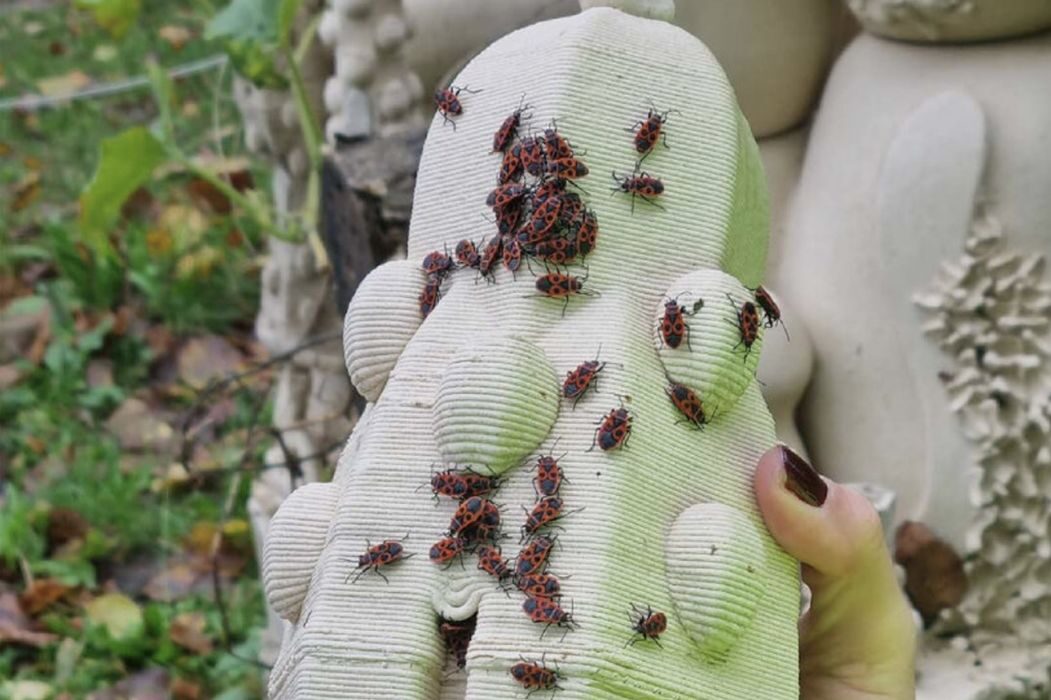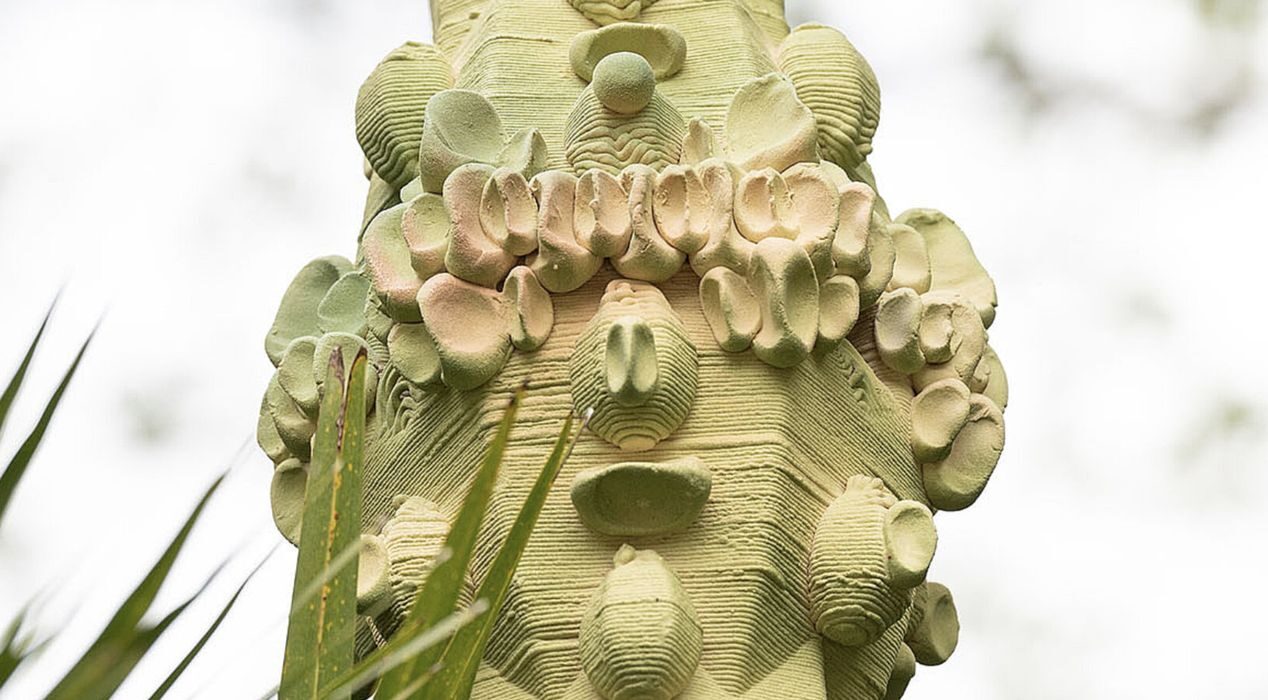
This week’s selection are the Entomological Utopia sculptures by artist Raphaël Emine.
As you might be able to tell from the work’s title, these are essentially “insect hotels”. They provide space to house bugs and other natural critters.
The towers are 3D printed in ceramic material, using WASP equipment, which is well known for its ability to build large ceramic objects using local clay material. Emine used two 3D printers, the WASP 40100 LDM and a Delta WASP 2024 Clay.
Designboom explains the project concept:
“He also sources the design influences from plant fractals and geodesic mineral formations. These are visible through the patterns depicting his 3D printed ceramic sculptures, from the huge entrances to the decorative ball-shaped designs on the sides. Unlike traditional sculptures, which may be more rectilinear or enclosed monoliths, the ones Raphaël Emine has 3D printed have galleries, tunnels, corridors, and balconies throughout them all. These help the insects and small wildlife find spots for themselves and treat the ceramic sculptures as their natural nests.”

The towers were printed in the studio and then transported to their final location, a palm grove in Marseille, France. It has already begun to attract small wildlife in this location.

This is an excellent example of a 3D print application that is challenging to do with conventional tools. Here the highly complex design was reproduced in clay, and then installed where it will serve insects well for many years.
Via Designboom and Instagram
